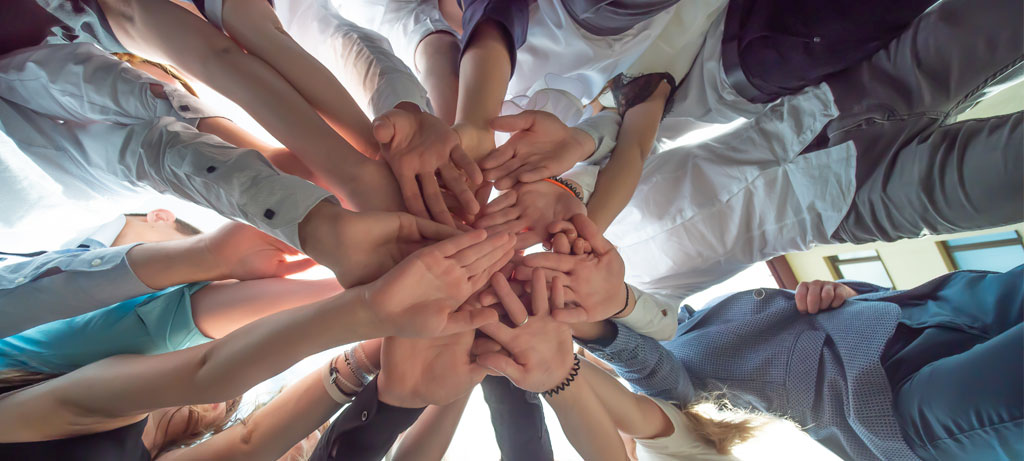
Quick Start Guide
12 Important Awarenesses About Addiction: The things I wish I had known... Book a Free ConsultationDownload The GuideHave you just discovered your child is struggling with addiction?
Quick Start Guide – Things You’ll Want To Consider.
So you’ve learned that your loved one has a substance use disorder (SUD). You’re wondering what you can do to help? You’re at the stage where you don’t even know what you don’t know… Here are 12 points to guide you towards educating yourself, finding resources and options, and making informed decisions. Read through and then talk with your family doctor or other health care provider. You and your loved ones have options.
1. Experimenting is a choice – addiction is not.
Many people experiment with drugs, alcohol or cigarettes but most do not get addicted. There are many theories about what causes people get addicted to substances or behaviors. What we do know is this: No one chooses to become addicted. Addiction is not a moral issue.
2. Family is the first line of care for someone with a substance use disorder (SUD).
To help, you need to get educated and be able to separate facts from myths. Double check information presented as facts. Many health professionals working in the area of addiction assume that family members and even people with SUD know a lot about addiction. Unfortunately that is very often not the case. Alway ask your doctor and support people this very important question: “Is there anything I should know that I might not know to ask?”
3. Communicate without judgement
Good communication is key. Everyone wants to feel seen, heard and understood. When we listen without judgement, and use non-judgemental or neutral words and facts, without blame, we can truly hear another. This creates trust and opens the doors to genuine conversation and connection. When your child feels seen and heard, they will start to trust you – in the midst of their survival state of mind they can start to feel safe. Be aware of that “judging little voice” in the background of your mind and send it packing!
4. take care of yourself first
Helping a loved one with SUD is challenging and complicated. You will be much more capable if you are equipped with the awareness, education and tools to move forward with confidence and intention. Learn effective ways to offer support without compromising your own safety, wellbeing and sense of peace, through family recovery courses designed with you in mind. Get support for yourself to truly support your loved one well.
5. Create a support Team
Addiction can be a life or death situation and there will be many challenging moments. It’s important to have a trusted friend we can connect with – so we can stay connected with ourselves. We are not experts in all things so we also need professionals we can call on for advice, information and support. Dealing with addiction can make us feel isolated. The situation is much too complex to try to manage alone. Our loved one also needs a support team and we need to support that team. It’s important to keep in mind that we all have the same end goal – to bring peace and connection back into our home and be our child’s best chance at recovery.
6. stay current on the Different Treatment options
There are several choices in treatment depending on the type of substance and the individual person. New options are always in research so always ask if there are alternatives or new options. Also with some substances, quitting “cold-turkey” can be life threatening. Talk with your doctor and learn about the options for different substances to share with your loved one for consideration.
7. Harm reduction is not ENABLING
Help your loved one stay alive so they can get help when they are ready. Harm reduction is like wearing a seatbelt in a car. You’re not encouraging an accident by being prepared. Relapse is part of getting well. Learn about harm reduction, such as “safe supply”, Naloxone for Opioid overdose and creating a relapse plan in collaboration with your struggling loved-one.
8. abstinence is not cured
In fact the risk of overdose and death increases substantially after a period of not using. The body’s tolerance is reduced. There is also the unexpected half life of substances other than the substance of preference, that may have been consumed in the past few days. Know the signs and create a plan in collaboration with your addicted loved one for the possibility of relapse. For most people, change is not a linear process. Recognize this is not easy for your loved one and support their attempt at moving forward.
9. it’s never too late to go to rehab
In recovery, people are often more open to improve their lives. Rehab teaches life skills essential to success. While we think they should be proud of their abstinence and accomplishments, people in recovery may become remorseful and depressed about things they did when they were using and concerns over how to move forward. Always offer rehab, even if it has been vehemently refused in the past. Rehab is an indicator of positive outcomes.
10. Know the signs of an overdose
An overdose can look like sleeping. If you can not wake someone, their limbs are limp, lips and/or nails are blue in caucasians or grey and ashen in people with dark skin, or if they are snoring or making odd gurgling sounds, call 911. Give CPR if they are not breathing and administer Naloxone if you have it. Naloxone can temporarily reverse an opioid overdose. Many jurisdictions now offer Naloxone (Narcan) free & without a prescription at the pharmacy. You can find videos on how to administer it on youtube.
11. The Good Samaritan act
Many overdose deaths occur because people are afraid they will be arrested if they call 911 to report a drug overdose. The Good Samaritan Act protects people who call 911 to save a life, from charges of personal possession of illegal substances in many jurisdictions. Check the policy in your area and tell your loved ones to tell their friends about the act. In most cases an ambulance will come, and not the police.
12. Ending Stigma Saves Lives
Stigma is based on fear and shame from being uninformed or misinformed. Addiction is a mental health issue. There is no shame in that. People who are stigmatized feel punished for having health issues. They feel shame and do not reach out for help. We all care about someone who struggles with addiction, though we often are not aware of it. Ending stigma saves lives. Join the conversation to end the stigma of addiction and all mental health issues. Only when we acknowledge what is not working, can we address the issues and identify what is needed to move towards positive outcomes.
This QuickStart Guide was written in loving memory of my son, Wyatt Thomas Smith and the things I wish I had known about addiction when my son was still alive that may have assisted me in my awareness of addiction issues. It is intended as a guide to exploring the issues of addiction which are left to the reader to pursue and formulate their own perspectives. This guide and all other information on this website is intended to plant the seeds of curiosity and awareness. The content of this website is in no way intended as advice – medical or otherwise. Neither the writer, nor the organization, accept any responsibility whatsoever for your choices. Continuing on this website indicates your acceptance of responsibility for your own actions and choices.
Copyright © 2018 – 2022 Tamara Scullion, Peace For Moms™| All rights reserved. You have permission to reprint this guide according to the template provided at PeaceForMoms.com, without any modification whatsoever and with copyright and disclaimer in tact. You can download a printable version of this quickstart guide here.
“Addiction Impacts the Entire Family: Pearls for Providers” was written by Alicia S. Ventura, MPH, Director of Special Projects and Research, Office Based Addiction Treatment Training (OBAT) at Boston Medical Center’s Grayken Center for Addiction. Republished with permission.
Don’t do this alone!! Join a community of Moms with shared experience, get support and learn how to be your addicted child’s best chance at recovery.
Feeling Safe and Sound
Peace for Moms is all about intention. How we get there is a 3 part process of awareness, Education and Tools. Getting to a place where we have the energy of creating positive change involves reducing the stress of being in a constant panic mode. We need to have a clear mind and be breathing well so the oxygen gets to our brain. How do we do this? There are many holistic approaches that offer ways to achieving the same goal – which is a state of PEACE. We achieve this through various practices, such as journaling, breathing exercises, meditations, visualizations, neurofeedback, hypnosis, walking, etc. Sometimes we just can’t get calm enough to “get calm”… Safe and Sound Protocol is a passive treatment through specially filtered music, designed to take you out of a perpetual state of fight or flight…
Gain a Clarity of Intention, the Tools & a Roadmap to Navigate this Journey Towards
Healing and Wellness
Family recovery life coaching is specifically focused on the loved-ones of people struggling with addiction. A family recovery life coach is professionally trained and knowledgeable about the family dynamics when addiction is involved. At Peace For Moms, we work specifically with the Moms. Invest some time in self-care… Try a complimentary 30 minute coaching session to see if it’s a fit for you.
Experience a 30 minute coaching consultation for free. Discover if one-on-one coaching on zoom is the right choice for you.
Book your free consultation via our scheduling system.
Contact
Do you have questions or comments? We'd like to hear from you!
Toll Free: +1.888.889.0343
in USA & Canada
Download eBusiness Card
“The opposite of addiction isn't sobriety. It's connection.” ~ Johann Hari


